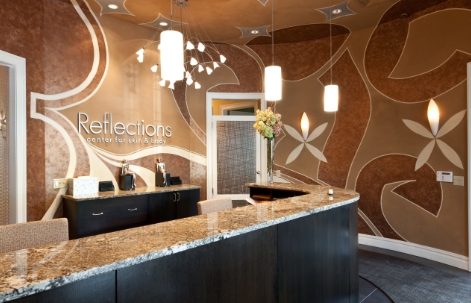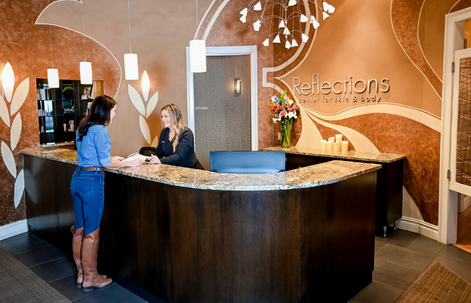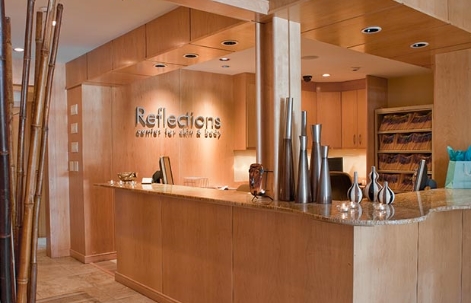Because our culture admires a rosy blush to the cheeks, rosacea, a chronic inflammatory condition of the skin, can exist unnoticed while it creates more damage to the skin. Dry, bumpy, and rough skin with red blotches can escalate into disfiguring conditions such as rhinophyma which causes a bulbous appearance to the nose. The diffuse inflammation can disguise itself as a “rosy blush,” so it’s important to know the signs and symptoms of rosacea for effective treatment and timely management. Here’s what to know about rosacea as well as how we can use Microbotox to treat it here at Reflections Center for Cosmetic Medicine.
What is Rosacea?
Rosacea is a chronic skin condition affecting over 16 million Americans. Most often, it may resemble acne and cause more widespread facial redness than just frequent blushing. Not enough is known about rosacea, but it’s thought to be the product of blood vessels and their relationship to the central facial skin where it most often occurs. However, there are multiple types of rosacea, including ocular rosacea which can affect the skin around the eyes. It can range from mild to severe symptoms, with more severe symptoms causing damage to the surrounding skin.
Who Is Affected By Rosacea?
Women aged 30-50 with fair skin are often at risk, but this condition can affect almost anyone. Rosacea also tends to run in families, so if either or both of your parents or siblings had or have rosacea, you’re more likely to develop rosacea. Because too little is known about its causes, it’s difficult to say why rosacea affects the people it does.
Symptoms of Rosacea
Red or flushed skin is the main symptom of rosacea. Skin redness often occurs on the cheeks, nose, chin, and forehead but in rare cases, rosacea can affect the skin on your chest or back. Different types of rosacea can be accompanied by symptoms like skin thickening, raised red patches, visible blood vessels (spider veins), skin inflammation, and other symptoms. Acne rosacea, or papulopustular rosacea, can cause the development of hard nodules or pus-filled bumps that may be inflamed and sensitive. In the case of ocular rosacea, it may cause eye irritation.
What Triggers Rosacea Flare-Ups?
Symptoms of rosacea typically occur in flare-ups because of certain triggers. There are many factors that can exacerbate your rosacea symptoms. Many rosacea patients experience flare-ups from the following:
- Sun exposure and intense heat
- Cold temperatures
- Changing weather conditions
- Strenuous activity or exercise
- Emotional stress
- Oily skincare products
- Skin irritants like soap or detergent
- Spicy foods
- Hot, caffeinated, or alcoholic beverages
How is Rosacea Treated?
Oral and topical medications are often prescribed to rosacea patients to minimize skin redness and rosacea flare-ups. If patients have persistent redness that is not improved by topical creams or personalized skin care routine, in-office rosacea treatment can be discussed. We often treat rosacea with laser treatments like the VBeam laser, PDT, the GentleYAG laser, or intense pulsed light (IPL). All of these treatments can remove visible blood vessels. CO2 laser skin resurfacing is especially effective for patients with severe rosacea.
Non-laser treatments like prescription medications and microbotox are also offered by our physicians. Microbotox reduce the dilation of facial blood vessels, reducing redness and other symptoms of rosacea. All of these rosacea treatment options are non-invasive or minimally invasive so patients can expect a pain-free treatment with little downtime or recovery. You can discuss all your options and ask any questions you might have at your free consultation.
Microbotox for Rosacea at Reflections Center for Cosmetic Medicine
Rosacea can be challenging to live with, especially when you feel embarrassed by redness and blushing. At Reflections Center for Cosmetic Medicine, our cosmetic physicians can help you learn more about how to manage rosacea symptoms and reduce redness. Let us help you find an effective treatment at our New Jersey offices in Bridgewater and Livingston – call or contact us online today.







